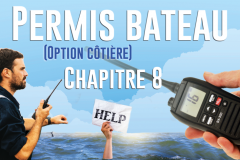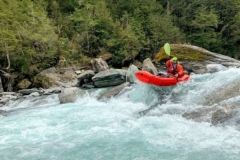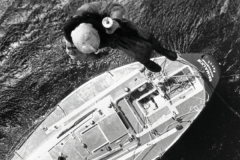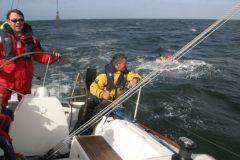Stay calm
Of course, this is easier said than done! But if you fall overboard, try not to panic and stay positive. Having a strong mental state can play into your survival.
Save yourself money
Most people who fall in the water will tend to swim to the boat, but this is a big mistake. You'll tire yourself out more than you need to. Unless you can easily reach your boat, a beach, a life preserver or any other floating object. Swimming against the wind and current is exhausting! In addition to fatigue, swimming will lower your body temperature, increasing hypothermia.
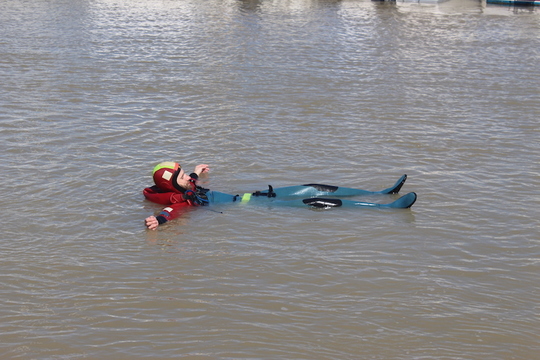
Try to float
If your teammates have had time to throw you a life preserver, hold on to it. While some people think that clothing and shoes can keep you from floating, this is not true. Your clothing will mainly help you retain heat.
If your shoes or heavy clothes or objects prevent you from swimming well and tend to weigh you down, try to get rid of them. If you have a flashlight with you, keep it on hand, as it will be useful for signalling you to the rescue team. A knife can also be useful if you have to cut something.
Tip: Use your pants to make a makeshift float. Tie knots in the legs and fill it with air by holding it wide open or tucking it behind your head. Then tuck the float under your arms.
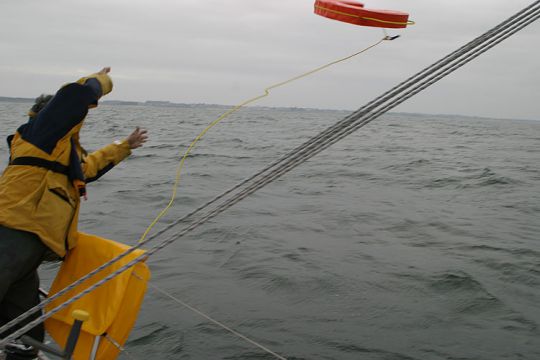
Keep your body warm
Hypothermia is one of the greatest risks of drowning, even in moderate water. You should try to conserve as much of your body heat as possible:
- Try to get as much of your body out of the water as possible and at least your head
- If several of you have fallen in the water, hug each other and get as warm as possible.
- Bend your body into the fetal position. This compact position will reduce heat loss and is not uncomfortable when wearing a life jacket.
- Tighten your life jacket to keep warm.

 /
/ 




